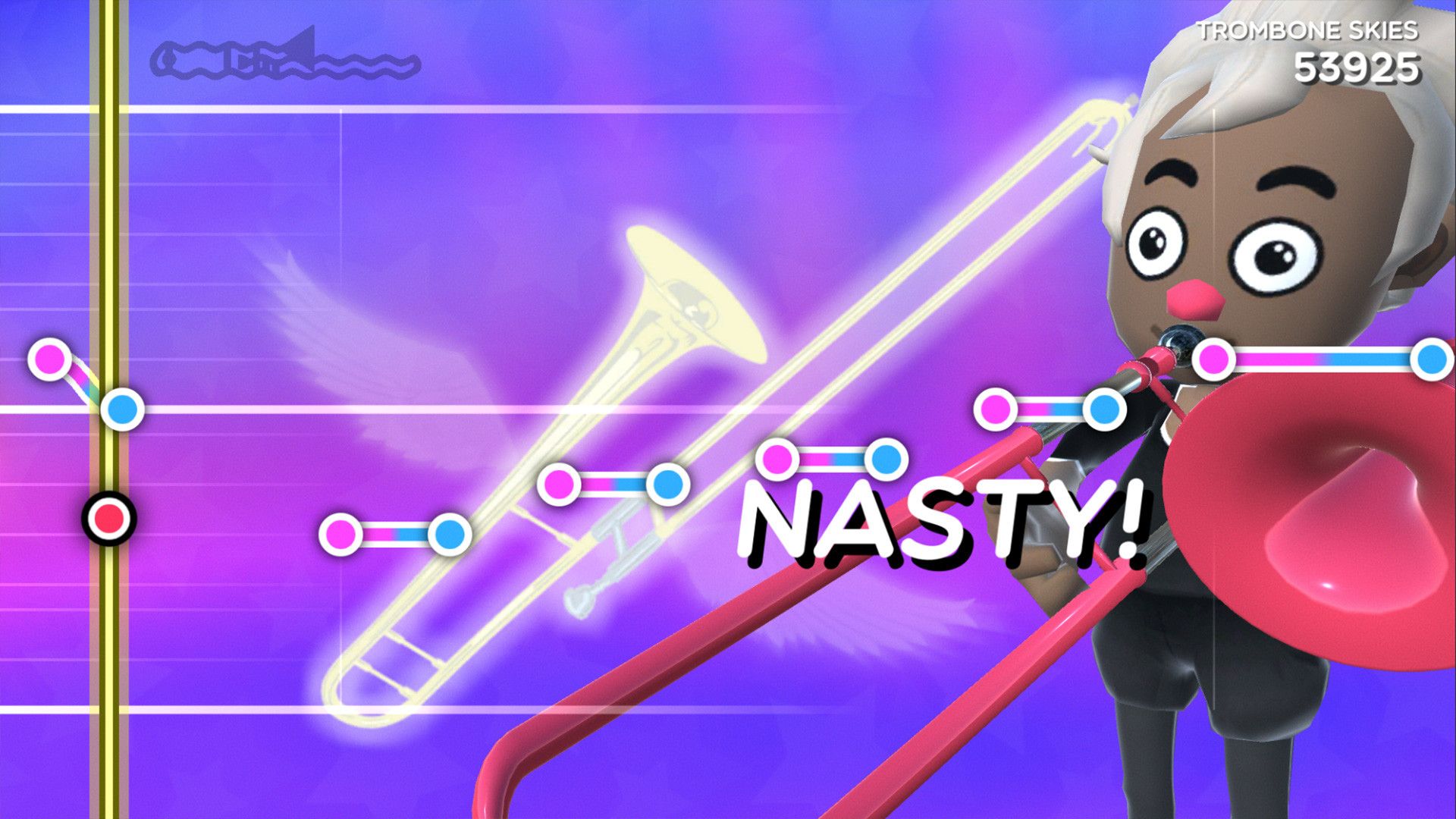
Trombone Champ seemed to appear from nowhere to become the indie hit of the month last week. The rhythm game, which puts players behind the mouthpiece of every orchestra conductor's worst nightmare, was released to viral social media acclaim thanks to a deliberately janky control scheme leading to some hilarious renditions of some famous classical music.
Trombone Champ is the best game ever made pic.twitter.com/GH58eHGXHVSeptember 21, 2022
Clips like those were crucial to Trombone Champ's dominance of social media in the days following its launch, but according to indie developer Hafiz Azman, who specializes in rhythm games, they were also the result of a bunch of brilliant design decisions.
Asman says that using songs you already know - anthems like Beethoven's Fifth Symphony or the William Tell Overture - is key to why Trombone Champ works. Much like the deliberately terrible recorder or melodica covers of songs like the Jurassic Park theme or 'My Heart Will Go On' from Titanic, subverting your expectations helps make Trombone Champ much funnier than if it was relying on its own soundtrack.
But that's just the start. Azman then points to games like Guitar Hero and Rock Band as an example of 'Quantization'. In music, that's the practice of ironing out the natural imprecision of an instrument, but in those games, it gives you a little extra leeway regarding your inputs. Because "[Rock Band's] goal is to let you feel like a competent musician," it'll account for any button-presses that are just a little too slow, or simply not play anything if you're way off.
2. No quantization. In e.g. Rock Band, being milliseconds off will keep your guitar on time because it's just playing a pre-made guitar track. When you miss, the guitar track mutes only after starting to play already. So you only hear perfect notes (in time and pitch), or silence pic.twitter.com/PJe039N0p0September 26, 2022
That sense of competency, however, is "the total opposite of what Trombone Champ wants you to feel." As a result, every slight deviation from the actual notes is highlighted - and because you already know the songs, it sounds even worse than before.
Finally, Azman notes that even the choice of instrument has its place within rhythm game theory. The amount of effort required to play a brass instrument - particularly one with as much internal piping as a trombone - is pretty significant. As such, it takes a long time for the instrument to make a noise, while rhythm games tend to lean on precision inputs to make players feel their mastery. The amount of time it takes for a trombone to hit the peak of a note is almost as long as a traditional game would allow for a player to make an entire input.
Trombone Champ is the best game ever made pic.twitter.com/GH58eHGXHVSeptember 21, 2022
To help out with that, Azman points out that Trombone Champ doesn't actually award timing, but overall accuracy. You might not hit the note at the exact right time, but you might match it for 75% of its duration, which will net a score based on that success rate.
Weekly digests, tales from the communities you love, and more
Much like the way in which mastery of Guitar Hero isn't going to turn you into the next Hendrix, Trombone Champ's tricks won't make you a pro in real life, but it's fascinating to see the ways in which the central conventions of the rhythm genre have been flipped on their head to create its latest hit.
Want to feel like a real maestro? Here are the best rhythm games to make you bop to the beat.

I'm GamesRadar's Managing Editor for news, shaping the news strategy across the team. I started my journalistic career while getting my degree in English Literature at the University of Warwick, where I also worked as Games Editor on the student newspaper, The Boar. Since then, I've run the news sections at PCGamesN and Kotaku UK, and also regularly contributed to PC Gamer. As you might be able to tell, PC is my platform of choice, so you can regularly find me playing League of Legends or Steam's latest indie hit.


